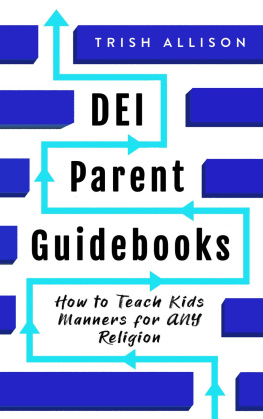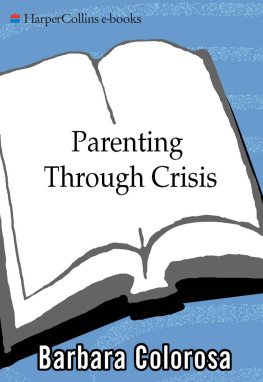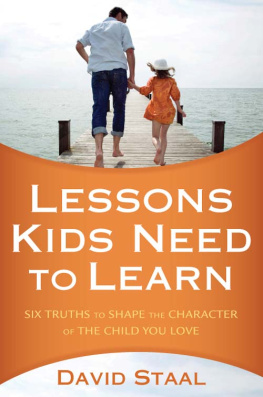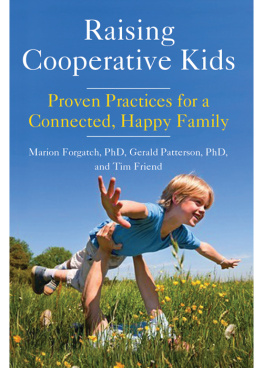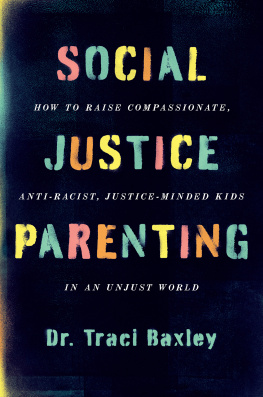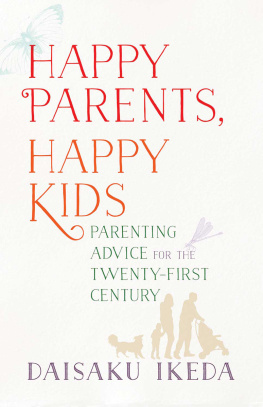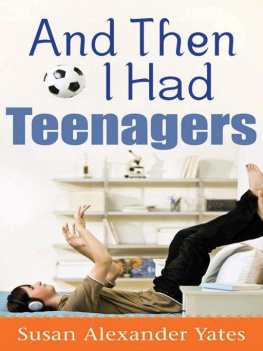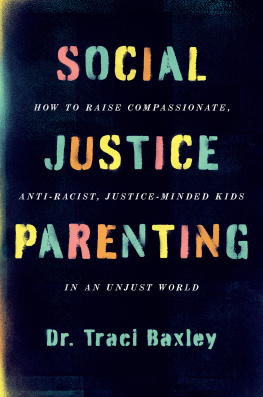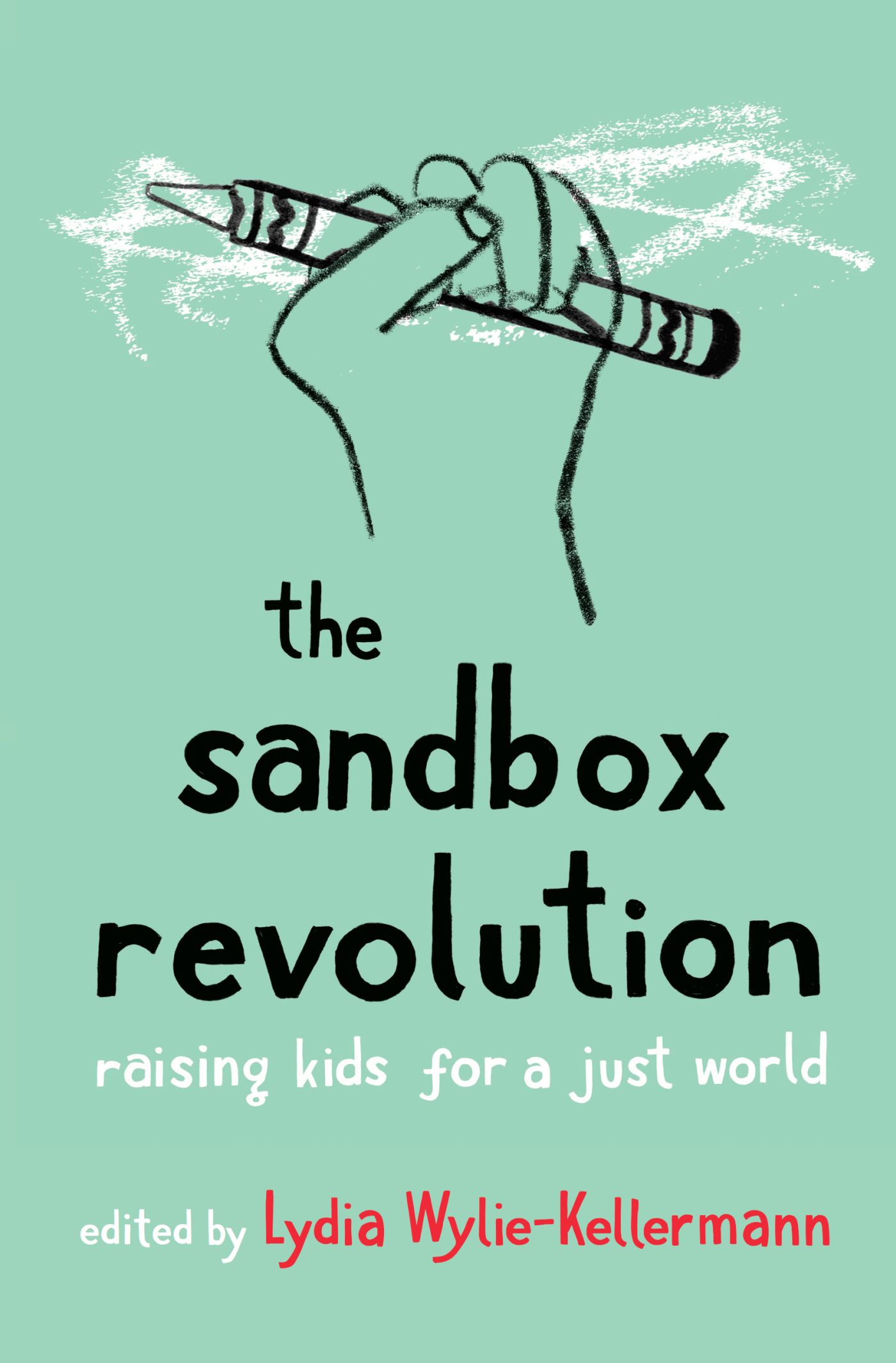Copyright 2021 Broadleaf Books, an imprint of 1517 Media. All rights reserved. Except for brief quotations in critical articles or reviews, no part of this book may be reproduced in any manner without prior written permission from the publisher. Email or write to Permissions, Broadleaf Books, PO Box 1209, Minneapolis, MN 55440-1209.
All Scripture quotations, unless otherwise indicated, are from New Revised Standard Version Bible, copyright 1989 National Council of the Churches of Christ in the United States of America. Used by permission. All rights reserved worldwide.
For all the children who have inspired the writing and the reading of this book. May you know you are loved in freedom and fullness. And may there always be laughter and dancing and justice.
Your children are not your children.
They are the sons and daughters
of Lifes longing for itself.
They come through you but not from you,
And though they are with you
yet they belong not to you.
You may give them your love
but not your thoughts,
For they have their own thoughts.
You may house their bodies
but not their souls,
For their souls dwell in the house of tomorrow,
which you cannot visit,
not even in your dreams.
You may strive to be like them,
but seek not to make them like you.
Kahlil Gibran, The Prophet
Questions That Ache
Lydia Wylie-Kellermann
Lydia Wylie-Kellermann is a writer, editor, activist, and mother. She lives with her partner and two boys in the neighborhood where she grew up in southwest Detroit. She is the managing editor of Geez magazine, a quarterly, ad-free print magazine at the intersection of art, activism, and faith. She is a contributor to multiple books, including Rally: Litanies for the Lovers of God and Neighbor (edited by Brittney Winn Lee, Upper Room Books, 2020); Watershed Discipleship: Reinhabiting Bioregional Faith and Practice (edited by Ched Myers, Cascade, 2016); and Bury the Dead: Stories of Death and Dying, Resistance and Discipleship (edited by Laurel Dykstra, Cascade, 2013).
W e stand at a time of unraveling. All that lies just below the surface is being uncovered. The systems that have nursed us all our lives (capitalism, militarism, racism, individualism, etc.) are crumbling. And it is a beautiful thing because these systems are and have always been destructive to our global community of humans, creatures, and elements. We need this time of transformation, but the collapse is painful.
At night, I climb into my kids bunk bed to snuggle beside them as they each name and hold their own fears. I put my hand on their backs and feel their bodies relax. I run my fingers through their hair and their heartbeats steady. I breathe my prayers into them as I feel them drift into dreams. I rest a little longer beside my sleeping boys, under the warmth of their covers, and I begin to weep for them, for our neighborhood, for the world. I feel the urgent temptation to shield them from it all. I could withhold the truth. I could take what privilege I have and use it to build a wall around us all.
But in reality, those temptations do not mirror my prayers. I want both my children to be fully human. I want them to know what it feels like to be alive. I want them to delight in the reciprocity of being communal members on this sweet Earth. And that means giving space for their hearts to break, honoring their hard questions, and encouraging them to act out of their own beliefs and passions.
Each of us reading these words has been made for this moment as an individual but also as one who is intertwined in the lives of children. We have been invited into this time of sacred shifting, which must move us from corporate, globalized systems that deal in death to localized, communal systems that nurture life. It is in this time and space that we all are nurturing children and being prodded by their laughter, fears, and questions.
There are moments in our daily monotony that seem to link the enormous love I have for these kids and my deep longings for justice. The intersection of those proddings consistently asks me to reevaluate how I live, what I believe in, and how big I dare to dream for what is possible for our communities.
A Bunny Funeral
Last summer, a pile of freshly dug dirt lay next to the hole in our backyard. My younger son, Cedar, then three, picked up the furry body of the beloved rabbit he had named Raccoon. He cuddled the stiff body in his arms as if it were a baby. He walked slowly around the circle of gathered family and neighbors, stopping to let each person say goodbye and pet Raccoon one last time. Then, with tears in his eyes, Cedar laid the body in the hole.
I stood under our grapevines with an aching heart for my boy. I was amazed at the sacred spirit he could hold and his tears that flowed freely. And I wondered, How can those of us who love him nurture spaces that allow him, as he grows, to keep touching death and grief in a culture that tries to push death out of sight? How can we make sure he always feels freedom to cry and act tenderly? How can I resist the toxic masculinity that will be thrust upon him from every direction as he gets older?
Hiding from Bears
It was just weeks into preschool when I picked up Isaac, my older son, from school. We piled into the car and buckled boosters and car seats as Isaac blurted out the stories from his day.
Mommy, today at school, we had to lock the doors and all hide in the bathroom and be really quiet.
Oh yeah, why did you have to do that?
In case a bear comes and wants to eat us.
Isaac had been told that lockdown drills were to protect him from bloodthirsty bears lurking around southwest Detroit. I didnt envy his teachers job. How else do you explain to a four-year-old that our country cares more about money and owning guns than it does about the lives of our children? Now at seven, Isaac is taught to hide quietly from bad guys with guns.
How on earth do we parent in an age when gun violence is so rampant in this country? How do we work to let our kids feel safe enough to grow and learn? How do we offer different narratives from bad guys with guns? How do we foster spaces where security is dependent on community, trust, and nonviolence rather than armed security guards and metal detectors?
Ultrasound Anxiety
Before either of these beloved children was born, I sat in the ultrasound roomnot once, but twicewith goop on my belly and anxiety in my heart. I was shocked that I would be the mother of two boys. I never doubted for a second that I would love them. But I doubted my ability to be any good at it. I felt completely unprepared. I had been ready to raise powerful, smart, spirit-driven, feminist girls! But boys? And I was thrown off by my reaction, because of course I believe that gender is a social construct. So why the feelings of fear and insecurity?


